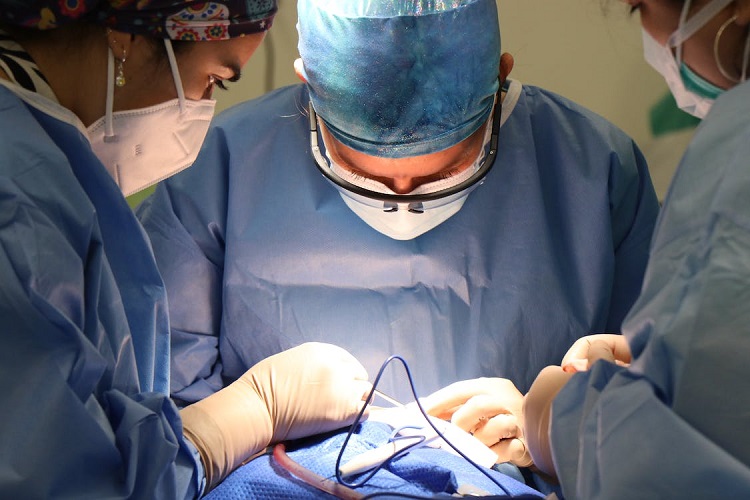XenoSim: ERC Grant for UCD research seeking to unlock pig-to-human heart transplants
Posted 1 June, 2023

A UCD project aiming to use pioneering computational techniques that could make pig-to-human heart transplants a reality has received a European Research Council (ERC) Consolidator grant of €2 million.
With this support (opens in a new window)Dr Philip Cardiff, from the UCD School of Mechanical and Materials Engineering, hopes to establish a new field of ‘computational cardiac xenotransplantation’.
His five 5-year project 'XenoSim' will develop advanced computational techniques that can provide unprecedented insights into the cutting-edge realm of pig-to-human heart transplants.
"We stand on the threshold of a groundbreaking medical era where pig-to-human heart transplants are becoming a reality. From an engineering standpoint, pig hearts share similarities with their human counterparts in terms of ‘pump design’; however, their distinct size, shape, and functional characteristics introduce important differences that can impact their performance within the human body,” said Dr Cardiff, who is the Director of the Bekaert University Technology Centre at UCD and a funded investigator at (opens in a new window)I-Form, the SFI National Research Centre for Advanced Manufacturing.
“With the support of this ERC Consolidator grant, we aim to unlock invaluable insights into these differences by developing advanced biomechanical computational models.
“This pioneering research promises to offer not only unprecedented insights into the cutting-edge realm of cardiac xenotransplantation but also to establish pioneering computational techniques with significant implications for a wide range of scientific disciplines.”
The competitive ERC Consolidator Grants are awarded to researchers to pursue their most promising ideas.
Worth €657 million in total, the grants will create some 1950 jobs for postdoctoral fellows, PhD students, and other staff at host institutions around Europe.
The XenoSim team will employ three Postdoctoral researchers, three PhD students and one Research Assistant.
“ERC Consolidator grants support researchers at a crucial time of their careers, strengthening their independence, reinforcing their teams and helping them establish themselves as leaders in their fields. And this backing above all gives them a chance to pursue their scientific dreams,” said Professor Maria Leptin, ERC President.
Cross-species transplants, or xenotransplantation, has long been a dream for clinicians as a means to address organ shortages.
And while rapid progress in gene editing has made the concept possible, barriers such as rejection, immunity and infection remain.
To overcome these requires a deep understanding of the physiological and mechanical challenges introduced by xenotransplants.
XenoSim aims to address these challenges by providing fundamental clinical insights into the nascent field of cardiac xenotransplantation through the development of novel high-resolution, higher-order, multiphysics simulation methods.
It is targeting the establishment of the first family of porcine cardiac xenotransplant models that can provide clinically significant insights into the haemodynamic compatibility of porcine donor hearts, the impact of surgical approach, and the consequence of pathologies.
To provide these novel insights requires new coupled simulation approaches.
Accordingly, the project aims to create a new class of monolithic finite volume fluid-electrosolid interaction methods, which can provide predictions in clinically relevant timescales through the exploitation of hybrid CPU-GPU systems.
These novel numerical methods are expected to impact a broad range of fields well beyond the project.
By: David Kearns, Digital Journalist / Media Officer, UCD University Relations (with materials from Emma Loughney, UCD Research and Innovation)
To contact the UCD News & Content Team, email: newsdesk@ucd.ie






